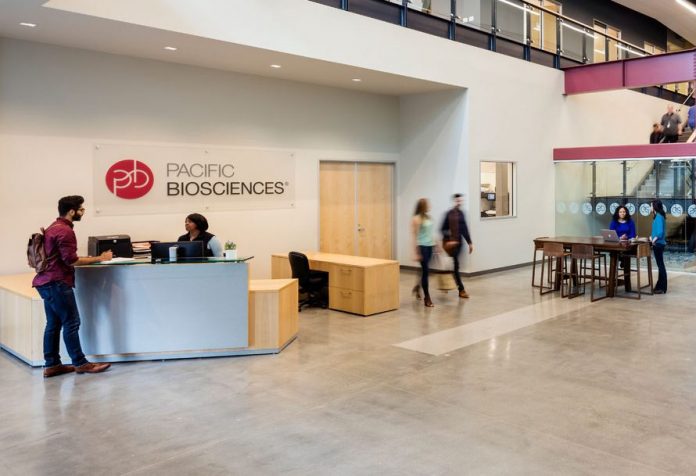
Sequencing company PacBio, exome and genome testing and interpretation company GeneDx, and the University of Washington announced today a collaboration to assess the use of long-read whole-genome sequencing (WGS) to increase diagnostic rates in pediatric patients with genetic conditions.
Under the collaboration, GeneDx will perform sequencing and analysis of samples from 350 people, 120 of who are enrolled in the SeqFirst WGS study at Seattle Children’s Hospital to include sequencing of biological parents, duos and trios, as available. The study will conduct bother short- and long-read sequencing to discover whether long-read sequencing can uncover novel variants not accessible using short-read sequencing technology.
According to Christian Henry, CEO of PacBio, the collaboration is the latest among a host of other research studies the company has entered the past few years to study the capabilities and potential applications of its HiFi long-read WGS technology. Commenting on this new collaboration, he noted that “Through this work, we move closer to our vision of creating a world where no family spends years on a diagnostic odyssey trying to understand the underlying genetic cause of their child’s disease or wondering whether future children will also be afflicted.”
SeqFirst is a collaboration between UW Medicine, Seattle Children’s Hospital and Fred Hutchinson Cancer Center in Seattle that is sponsored by GeneDx and sponsored in part by the Brotman Baty Institute. The newborn SeqFirst study is examining the use of rapid whole-genome sequencing to improve care and outcomes of children in the intensive care units at Seattle Children’s Hospital who are under six months of age.
GeneDx will employ PacBio’s Revio sequencing platform to long-read WGS and analysis. It will assess whether increased accuracy, read length and methylation information provided by the system will allow researchers to better examine the genome and potentially increase the rate of diagnosis of genetic diseases. Sequencing data collected during the study will be contributed to the Consortium of Long Read Sequencing (CoLoRS) database, an international collaboration of researchers created to catalog and provide the frequency for all classes of variation found in the human genome discovered via the use of long-read sequencing.
“For more than twenty years, we have pioneered the development of clinical diagnostics, with the goal of ending the diagnostic odyssey for patients with rare genetic diseases,” said Gustavo Stolovitzky, PhD, GeneDx CSO. “We are excited to bring together GeneDx with PacBio and the University of Washington to explore the potential of innovative methods such as long-read sequencing to improve our ability to deliver a precise genetic diagnosis for these young children.”
PacBio also has an ongoing collaboration with Google to implement the deep learning method called DeepConsensus using data derived from the Revio system to improve long-read sequencing performance with DeepVariant. Google is also providing funding for this new research collaboration.
“These collaborations will allow us to realize goals from the origin of Google Health—for AI to find real applications in healthcare to help with critical and complex cases. By contributing to solutions for the most complex cases and the least served communities, we believe we can demonstrate the usefulness and importance of such technologies in better health outcomes. Our technology being embedded with Revio is a unique opportunity for us to make a difference with every run of the instrument,” said Greg Corrado, head of Health AI at Google.











